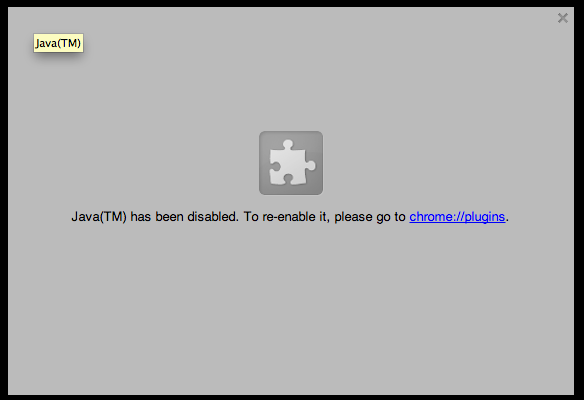Installing the software
Jan 20, 2017 Description: Multiple vulnerabilities exist in Java 1.6.0_17, the most serious of which may allow an untrusted Java applet to execute arbitrary code outside the Java sandbox. Visiting a web page containing a maliciously crafted untrusted Java applet may lead to arbitrary code execution with the privileges of the current user. How Important Is Java for the Mac? I seem to be getting notifications for Java updates with increasing frequency. I always try to keep all software up-to-date on my Mac, but not only is Java popping up more often, but the update installer wants to change my homepage to Yahoo.
Windows
- Make sure you have a recent Java JRE installed on your system. Gephi is compatible with Java 7 and 8 versions. Download Free Java here.
- After the download completes, run the installer and follow the steps.
Mac OS X
- After the download completes, click on the downloaded .dmg file.
- Drag the gephi application in your Application folder.
Linux

- Update your distribution with the last official JRE 7 ir 8 packages.
- After the download completes, unzip and untar the file in a directory.
- Run it by executing ./bin/gephi script file.
Java For Mac Users Windows 10

Troubleshooting
Java 7 standard edition or newer required
Check you have Java properly installed on your system. If you're on Linux, you may provide the path to the jdk with ./bin/gephi --jdkhome $JAVA_HOME
JVM Creation failed
This error message is due to memory settings, see following section.
Memory
Memory available to Gephi is determined by Java. Less or more memory can be allocated by configuring Gephi’s startup settings. If too less memory is allocated, Gephi will stop running when it reached the limit and you will loose your current work. If more memory than what the system is equipped with is set, Java will not be able to start and return “JVM Creation failed” message. By default, maximum memory is set to 512mo.
To modify memory settings, you need to edit gephi settings file. Modify the value after the -Xmx option to change the maximum heap space. For example, to use a heap size between 256 and 1024 MB, change the options to -Xms256m and -Xmx1024m. If you have Gephi open, you must close and reopen Gephi before new options take effect. On computers with 2GB of memory, you can set -Xmx1400 to get maximum performance.
How to edit gephi.conf:
- On Windows, go to the Gephi folder in Start menu and click on Startup Settings. Edit this file with Notepad or WordPad. Alternatively, go in C:Program Files (x86)Gephi 0.9etcgephi.conf and edit file manually.
- On Mac OS X, right-click on Gephi application icon and select Show Package Contents to open a new Finder window displaying a Contents folder. Open the Contents folder, and then open the Resources/gephi/etc folder, in which the gephi.conf file resides. Use TextEdit to edit the file.
- On Linux, go into your application directory and then into the etc folder. Edit the file with a text editor.
When multiple JRE or JDK are installed on the same machine, you can specifty to Gephi to use a particular path. Edit gephi.conf as described in the upper section, uncomment the jdkhome line and set the JRE or JDK path.
Java For Mac Users Download
User files
Locate and delete gephi user directory to clean your installation.
- On Windows 2K/XP, user diretory is located in
C:Documents and SettingsusernameApplication Data.gephi - On Windows Vista/Seven/8/10, user directory is located in
C:UsersusernameAppDataRoaming.gephi - On Mac OS X, user directory is located in
/Users/username/Library/Application Support/gephi - On Linux, user diretory is located in
/home/username/.gephi
For the protection of our customers, Apple does not disclose, discuss, or confirm security issues until a full investigation has occurred and any necessary patches or releases are available. To learn more about Apple Product Security, see the Apple Product Security website.

For information about the Apple Product Security PGP Key, see 'How to use the Apple Product Security PGP Key.'
Where possible, CVE IDs are used to reference the vulnerabilities for further information.
To learn about other Security Updates, see 'Apple Security Updates.'
Java for Mac OS X 10.6 Update 2
Java
CVE-ID: CVE-2009-1105, CVE-2009-3555, CVE-2009-3910, CVE-2010-0082, CVE-2010-0084, CVE-2010-0085, CVE-2010-0087, CVE-2010-0088, CVE-2010-0089, CVE-2010-0090, CVE-2010-0091, CVE-2010-0092, CVE-2010-0093, CVE-2010-0094, CVE-2010-0095, CVE-2010-0837, CVE-2010-0838, CVE-2010-0840, CVE-2010-0841, CVE-2010-0842, CVE-2010-0843, CVE-2010-0844, CVE-2010-0846, CVE-2010-0847, CVE-2010-0848, CVE-2010-0849, CVE-2010-0886, CVE-2010-0887
Available for: Mac OS X v10.6.3, Mac OS X Server v10.6.3
Impact: Multiple vulnerabilities in Java 1.6.0_17
Description: Multiple vulnerabilities exist in Java 1.6.0_17, the most serious of which may allow an untrusted Java applet to execute arbitrary code outside the Java sandbox. Visiting a web page containing a maliciously crafted untrusted Java applet may lead to arbitrary code execution with the privileges of the current user. These issues are addressed by updating to Java version 1.6.0_20. Further information is available via the Sun Java website at http://www.oracle.com/technetwork/java/javase/releasenotes-136954.html
Java
CVE-ID: CVE-2010-0538
Available for: Mac OS X v10.6.3, Mac OS X Server v10.6.3
Impact: Visiting a web page containing a maliciously crafted untrusted Java applet may lead to an unexpected application termination or arbitrary code execution with the privileges of the current user
Description: An out of bounds memory access issue exists in the handling of mediaLibImage objects. Visiting a web page containing a maliciously crafted untrusted Java applet may lead to an unexpected application termination or arbitrary code execution with the privileges of the current user. This issue is addressed by preventing Java applets from using the com.sun.medialib.mlib package. This issue only affects the Mac OS X implementation of Java. Credit to Marc Schoenefeld of University of Bamberg for reporting this issue.
Install Java For Mac
Java
CVE-ID: CVE-2010-0539
Available for: Mac OS X v10.6.3, Mac OS X Server v10.6.3
Impact: Visiting a web page containing a maliciously crafted untrusted Java applet may lead to an unexpected application termination or arbitrary code execution with the privileges of the current user
Description: A signedness issue exists in the handling of window drawing. Visiting a web page containing a maliciously crafted untrusted Java applet may lead to an unexpected application termination or arbitrary code execution with the privileges of the current user. This issue is addressed through improved bounds checking. This issue only affects the Mac OS X implementation of Java. Credit to Jonathan Bringhurst of Northrop Grumman, and Jeffrey Czerniak for reporting this issue.